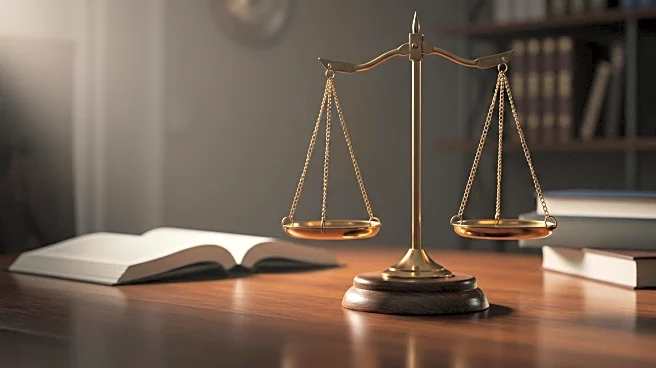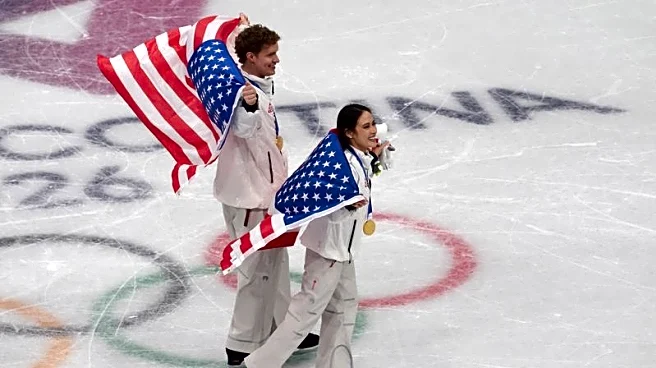What's Happening?
The University of Michigan has announced its intention to appeal the NCAA's recent ruling, which imposed sanctions on the school following an investigation into sign-stealing and recruiting violations. The NCAA's decision was based on what it described as 'overwhelming evidence' that former staffer Connor Stalions led a scheme to steal signs from opposing teams. Additionally, the NCAA cited recruiting infractions and a lack of cooperation from individuals associated with the program, including former head coach Jim Harbaugh and current coach Sherrone Moore. The penalties include show-cause orders for Harbaugh and Moore, significant fines, and a reduction in official visits for the 2025-26 school year. Despite these sanctions, Michigan avoided a postseason ban, and past achievements, such as the 2023 national title, remain intact. The university has expressed disagreement with the NCAA's interpretation of bylaws and the conclusions drawn from the evidence, prompting the decision to appeal.
Why It's Important?
The NCAA's sanctions against the University of Michigan have significant implications for the school's football program and its reputation. While the financial penalties and restrictions on recruiting visits are substantial, the absence of a postseason ban allows the team to continue competing at a high level. However, the damage to Michigan's reputation could have long-term effects, as the university is known for its academic excellence and the 'Michigan Man' ideal. The appeal process will be crucial in determining whether the university can mitigate these reputational impacts and maintain its standing in collegiate athletics. The outcome of the appeal could also set a precedent for how similar cases are handled in the future, influencing NCAA enforcement actions and university responses.
What's Next?
Michigan's appeal of the NCAA's decision will likely involve a detailed review of the evidence and arguments presented by both parties. The university may explore additional options to ensure a fair result, as indicated in its statement. The appeal process could take several months, during which time the university will need to manage the impact of the sanctions on its football program and recruitment efforts. Stakeholders, including fans, alumni, and prospective students, will be closely watching the developments, as the outcome could affect the university's reputation and future athletic success.
Beyond the Headlines
The broader implications of the NCAA's sanctions on Michigan highlight the ongoing challenges in collegiate sports regarding compliance and ethical conduct. The case underscores the importance of transparency and accountability in maintaining the integrity of athletic programs. It also raises questions about the balance between competitive success and adherence to regulations, which could lead to discussions on reforming NCAA policies and enforcement mechanisms.












